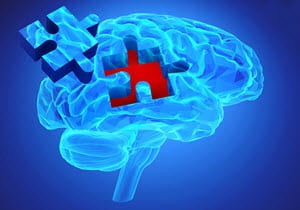 Free Consultation (610) 667-7511
Free Consultation (610) 667-7511  Free Consultation (610) 667-7511
Free Consultation (610) 667-7511 
If you suffer a brain injury, your doctors will seek to understand the impact that injury in order to create a proper treatment plan for you. If your injury is due to someone else’s negligence, you may decide to file a lawsuit to obtain compensation for your losses. In addition, when hurt at work, you can file a claim for workers’ compensation benefits. When you file a suit or a claim, the insurance company’s attorneys will likely argue that you are not as seriously injured as you state, or that you are malingering (faking). One way to deal with both issues: identifying your deficits for a treatment plan, and showing that you are truly injured, is through brain injury testing.

There are many types of brain injury tests. The key is to do your best no matter which one(s) you take.
There are many types of testing for malingering in brain injuries. Three common tests are:
The key to these tests is to be completely honest throughout the process. Failure to provide full, honest effort invalidates the test as far as showing any deficiencies and interferes with creating a proper treatment plan. In addition, any evidence that you were not honest or providing full effort will suggest to opposing counsel, regardless of the reality, that you are faking your symptoms. This is evidence the other side can use to minimize your settlement or prevent a successful verdict on your behalf.
The test of memory malingering is a visual memory recognition test. You are shown 50 drawings for 3 seconds each and then asked to respond about what you recognize. This test, “has consistently shown that it is sensitive to exaggerated or deliberate faking of memory impairment.” Various studies show that this test is very sensitive and is also very specific. In other words, the TOMM can identify specific areas where you are having problems due to brain damage. This helps your doctor(s) create a treatment plan. The test also shows whether you are putting forth complete effort and/or being dishonest.
The word memory test focuses on your ability to recall words. You are provided with a list of 20 word pairs. Throughout the test, you are shown different pairs and should choose the word that matches one you originally saw. For example, assume one pair is dog-cat and later dog-mouse. You should recognize the word dog. The test has built in periods of delay to show how well you remember as time passes. The WMT is especially good at recognizing malingering. Given its structure, “it is very difficult for a person who is not making a full effort to produce a plausible profile.” In other words, if you do not put forth full and honest effort, the WMT is likely to reveal it.
The structured inventory of malingered symptomatology test consists of 75 true/false items which are separated into sub-groups. SIMS looks at both psychopathological and neuropsychological symptoms. Psychopathology in the case of brain injury, focuses on impairment due to depression or other psychological illnesses. Neuropsychological means identifying issues related to your ability to “reason, concentrate, solve problems, or remember.” This test is used not only in personal injury cases, but also in criminal cases where a psychologist or psychiatrist is seeking to determine mental competency and psychological health. As with the other tests, SIMS has internal measures to determine your effort and honesty.

Brain injury tests include ways of tracking whether you are putting forth full effort.
There is no trick to taking these brain damage tests. They cannot be beaten. You cannot be coached to a successful result. Researching how the tests work online or buying a book about how they work will not improve your results. The key to any brain injury assessment test is simply this: try your best and be completely honest. Not only can TOMM, WMT, SIMS and other tests reveal if you are being dishonest, but a bad result can interfere with your ability to obtain proper treatment. Therefore, it is important, both for your recovery and your case that you try your hardest on any of the tests you take.
Frequently, when people don’t put forth their full effort or try to give a different answer, it is not because they mean to be dishonest, but because they are worried. They are worried that they won’t receive the treatment they need or receive the right settlement if they do not do poorly on the test. But the reality is that you can very likely interfere with your treatment and destroy your case if you even make a slight effort to alter your symptoms or the result.
Even mild brain injuries can have devastating consequences on your life and a great impact on your loved ones. The treatment is often expensive and can last a lifetime. In addition, you may find that you are unable to work due to cognitive impairment, depression, or fatigue. If you find yourself in this situation due to the conduct of another person, contact Lowenthal & Abrams. Our brain injury lawyers are here to help you obtain the compensation you deserve for the harm you suffered.
LOWENTHAL AND ABRAMS, P.C.

Contact us for a FREE consultation. No fee unless compensated.